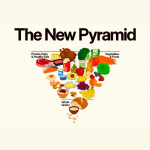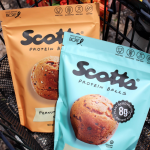New Fund Coefficient Capital to Back Omnichannel Businesses

It’s not just what you sell that makes or breaks a brand, but where you sell it. That’s the thesis behind venture firm Coefficient Capital, which last week announced it had raised $170 million for its first fund.
Coefficient’s two founding partners include Franklin Isacson, formerly of Verlinvest and UBS, and technology adviser and investor Andrew Goletka. The balance of skill sets is representative of Coefficient’s focus — investing in brands that have the potential to be truly omnichannel, succeeding in brick and mortar retailers as well as online.
“The opportunity we saw was to create a fund that approached brand and consumer products from both directions – not just the traditional way of selling into brick and mortar but not just the D2C pure play,” Goletka said. “We wanted to bring those two together and be the solution for founders and companies that were serious about being successful in the omnichannel world.”
The fund was oversubscribed, with Coefficient initially seeking $150 million, with the capital largely raised over 2019. Coefficient’s limited partners include traditional investors such as university endowments and pension funds. To-date, the company has invested in three deals including Nom Nom pet food and Just Spices, and has a fourth term sheet outstanding.
Coefficient currently has a staff of six, and is seeking to fill a further two junior level roles.
Isacson and Goletka told NOSH they look for food, beverage, pet and personal care companies with $4 to $5 million in trailing 12-month revenue. The fund’s typical check size will be between $5 to $15 million in series A or series B rounds, with the opportunity for follow on investment in subsequent rounds. Isacson added that the fund prefers to lead rounds, rather than be part of a syndicate, and often looks for a board seat as part of their investment.
Packaging also comes into play, with Isacson adding that some products — a refrigerated kombucha sold in glass bottles, for example — might just be too hard (at this time) to convince consumers to buy and ship online. Portfolio company Just Spices is one brand that is rethinking packaging — rather than selling in a typical glass spice jar, the company sells its spice mixtures in paper envelopes or cardboard tubes.
Isacson, who previously led growth investments in Oatly, Sir Kensington’s and Vita Coco, told NOSH that the investment landscape has shifted since he first started in the industry. Originally product alone took a company far, but now there’s more to it — if a brand wants to successfully exit. Part of the issue, he added, is that large strategics now feel more comfortable launching natural products themselves and don’t need to make acquisitions just to add a product type to their roster.
“Ten years ago if you walked in a supermarket and picked any aisle and invested in the natural or organic alternative, you probably would have done well,” Isacson said, “That was a very successful playbook and one that I took advantage of as well, but I think the world has changed a little bit.”
Of course, all CPG brands are struggling in this uncertain time as COVID-19 sweeps the globe and causes dynamic shifts to supply chains, logistics and retail environments. While the level of involvement may vary depending on a company’s needs, Goletka said, Coefficient does hope to play a hands-on role in helping guide its portfolio companies. The fund has built some proprietary tools — such as a platform that helps brands analyze their paid marketing and cost of consumer acquisition to adjust — which it believes will give it a strategic advantage over other funds.
However, while there is much turbulence in the marketplace, Isacson said, the enforced quarantines may help emphasize just how important a focus on omnichannel is — and pay off in the long run for Coefficient.
“We were investing behind certain trends, that this omnichannel [movement] was really going to hit the grocery store and the drug stores and the Sephoras of this world in a way that obviously the bookstore and consumer electronic stores had been hit by it already,” Isacson said. “And we do believe that if anything, this will accelerate this shift.”
















